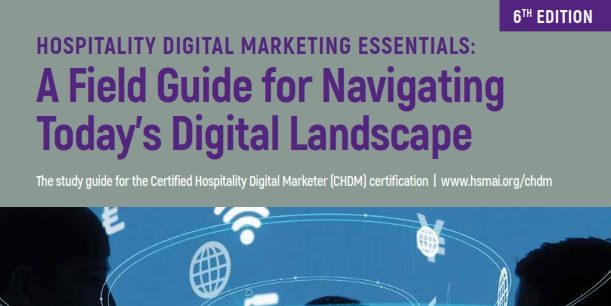By Dan Wacksman, CHDM, CRME, CHBA, founder of Sassato LLC, and Holly Zoba, CHDM, founder of Scout Simply
With the pandemic only underscoring the importance of an attractive, engaging hotel website, it’s a good time to remind yourself of some of the basics — such as good content. Content should be written, first and foremost, with the customer in mind. The hotel should be positioned appropriately with the top-selling features and informative descriptions of the hotel and its services. What you write matters as much as any keywords you use.
You and your brand may have invested a lot of time, effort, and budget into driving traffic to your website. Now that you have a possible customer on your website, it’s time to effectively market to them and convince them that your hotel is the best choice for their trip.
Search engine optimization (SEO) is extremely important for your hotel website and will have an impact on your textual content and metadata. Therefore, striking a strong balance between the use of content for marketing and SEO is very important.
When creating content, it is also important to understand why the customer is considering your hotel and, thus, how you should market to them. There are significant differences, for example, between a city center hotel, an airport hotel, and a resort hotel. Each has a different audience, a different reason for “being” (trip purpose), and various amenities and services. Your content should best relate to those differences and speak in the appropriate “voice,” allowing visitors to quickly understand who and what you are — and what impression you wish to give of your hotel.
Make sure your website reflects the reasons why consumers travel to you or your area. One way to approach this is to think of your website in terms of how a director of sales (DOS) markets the hotel. Does your website reflect the demand generators that bring customers to your area? Are you appropriately featuring proximity to local attractions, amusement parks, stadiums, etc.? Are you a venue for weddings, family reunions, etc.?
Conduct an annual update of customer segmentation optimization to fully address all key segments, from meeting and group planners to corporate and leisure travelers, social event planners, and family travel planners.
KEEP IT BRIEF
As you write copy, keep in mind that web copy is very different than print copy. Web copy is “scanned” or glanced through, not “read” in the traditional sense. This is even more true on mobile platforms, which have become the leading source of online traffic and where visitors have much shorter attention spans. Most consumers will not read your website content word for word but look for appropriate keywords or phrases.
Ensure that all text relays important features and selling points quickly and upfront. Avoid
long lists and overly promotional content that visitors won’t read. Content should be easily scannable, and paragraphs and sentences kept short and concise so visitors can find what they’re looking for quickly.
Your most important points should always come first, whether written in paragraph format, bulleted lists, or icons (for branded hotels, the formatting is typically pre-determined at the brand-level template).
It is best to avoid needless repetition, jargon, and unnecessary words in your copy — keep it as simple as possible. Effective online copywriting is an art, so some properties will hire professional copywriters or vendors to handle this area for them. Check first with your brand to see if they have any internal services or vendor recommendations.
KEEP IT FRESH
The “freshness” of your content is extremely important, from both marketing and SEO perspectives. All content areas should be up-to-date and include the latest information on the hotel itself, new services and amenities, and the most recent local area content. Not only is this important from a consumer perspective, but it is also extremely important from an SEO perspective. Google and other search engines weigh the “freshness” of content in their ranking algorithms.
All promotional or event dates should be constantly updated (e.g., is your website still promoting a New Year’s Eve event in February?). For SEO, it can be important to keep the addition of new content at a steady pace, keeping your site dynamic and continuously offering fresh content when and where possible. Consider updating key pages (those pages with the highest visitor view rates) at least once or twice a year. For sites that include customer reviews, the constant addition of reviews helps in this area as it is technically new content.
It is important to have proper room descriptions as these will help drive conversion and upselling efforts around premium room types.
In summary, is your website offering what your potential customers are looking for? Is it current? Can they find it quickly?
 Excerpted from Hospitality Digital Marketing Essentials: A Field Guide for Navigating Today’s Digital Landscape, Sixth Edition, by Dan Wacksman, CHDM, CRME, CHBA, and Holly Zoba, CHDM — the study guide for the Certified Hospitality Digital Marketer (CHDM) certification – available soon from HSMAI.
Excerpted from Hospitality Digital Marketing Essentials: A Field Guide for Navigating Today’s Digital Landscape, Sixth Edition, by Dan Wacksman, CHDM, CRME, CHBA, and Holly Zoba, CHDM — the study guide for the Certified Hospitality Digital Marketer (CHDM) certification – available soon from HSMAI.
